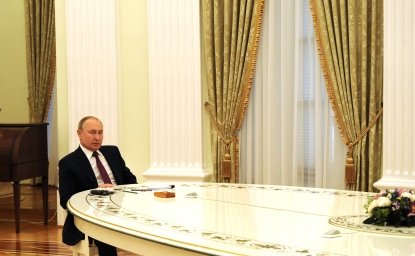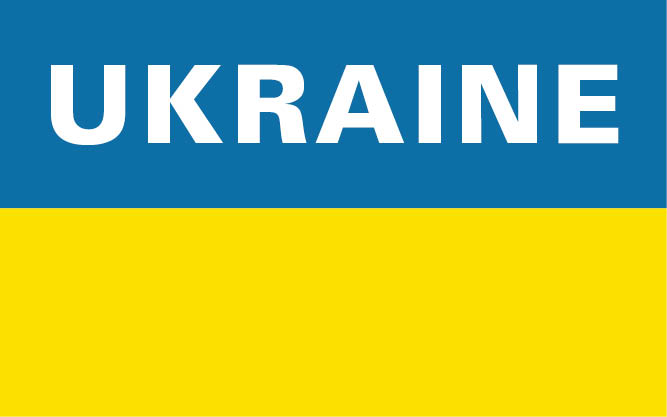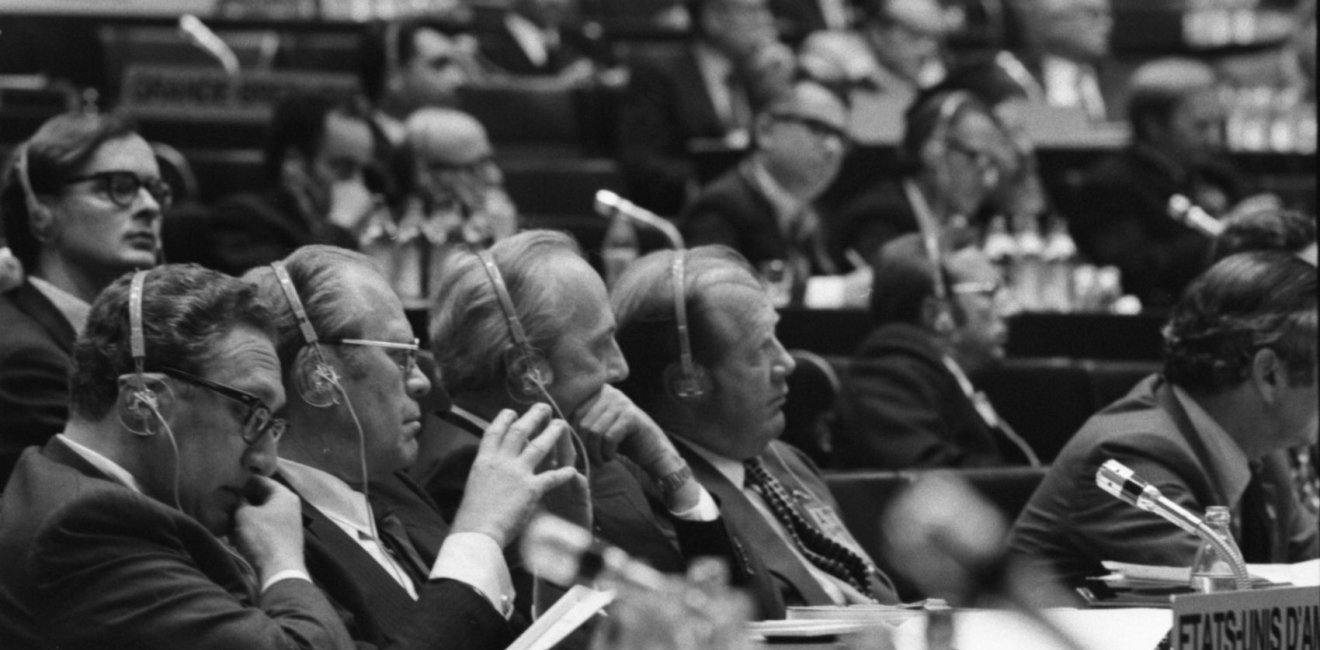
A blog of the Kennan Institute
As American and Russian negotiators meet in Saudi Arabia to discuss ending the war in Ukraine, the fate of more than Ukraine hangs in the balance. How the war in Ukraine ends will in large part shape the future of European security. And that geopolitical debate is best framed these days in the shorthand of two European city names.
Earlier this month, Russia’s Foreign Minister, Sergei Lavrov, commemorated the 80th anniversary of the Yalta Conference during the closing days of WWII, saying “For all its strengths and weaknesses, about which scholars still argue, the Yalta-Potsdam order has provided the international system’s normative-legal framework for eight decades.” Lavrov neglected to mention in his remarks the other definitive security framework—one that is celebrating its 50th anniversary this year: the Helsinki Final Act, which both secured the borders of post-war Europe and committed its signatories to observing a common human rights agenda. If you want to understand Moscow’s negotiating position for peace talks on Ukraine or its broader security goals, there is no better place to start than comparing these two seminal events.
Starting with Yalta, there is the obvious symbolism of grounding Russia’s negotiating position in the name of the Ukrainian city which Russia seized in 2014 and later illegitimately annexed. But the true meaning of Yalta for President Vladimir Putin goes much deeper. Yalta evokes a time when Moscow’s ruler was one of the Big 3 at the end of WWII—soon to become one of the Big 2. Moscow was at its apogee of strength and influence on the global stage relative to other powers. The negotiations at Yalta set the Cold War frontlines for decades through carving out zones of occupation and influence—consigning Eastern Europe to decades of control and oppression from Moscow. The Soviet interventions in Hungary in 1956, Czechoslovakia in 1968, and Poland in the 1980s all had their origins in the wartime negotiations at Yalta.
Putin himself declared to the UN General Assembly in 2015, “…The key decisions on the principles guiding the cooperation among states, as well as on the establishment of the United Nations, were made in our country, in Yalta, at the meeting of the anti-Hitler coalition leaders.” It is no wonder that Putin, with his fetishistic reverence for Soviet power and its success in World War II, would want to return to a world order shaped by Moscow’s military might and ability to intimidate other nations into permitting Russian domination over its neighbors—a world order both evoked and symbolized by Yalta.
Compare the Yalta negotiations to the Helsinki Final Act of 1975. Unlike Yalta, the Helsinki Final Act was a negotiated treaty fully ratified by its signatories, including Soviet Moscow. The Soviets valued Helsinki at the time because it finally provided international recognition of the post-war boundaries the Soviets had expanded at other nations’ expense. Helsinki also codified a commitment to certain human rights that were promised but never delivered in the Soviet Constitution. Over time, that unfulfilled commitment to human rights would erode the Soviet government’s legitimacy in the eyes of its own citizens. More broadly, Helsinki came to define and secure international borders and relations in Europe for almost five decades—until Russian aggression shattered that order.
Today’s Russian Federation has the status of a successor state to the USSR, including the Soviet Union’s permanent seat on the United Nations Security Council. In assuming this status, the Russian Federation also took on the Soviet Union’s treaty obligations, including its commitments to observe international borders and the individual and national rights established in the UN Charter and the Helsinki Final Act. It affirmed those obligations with respect to Ukraine specifically in the 1994 Budapest Memorandum (under which Ukraine surrendered its inherited Soviet nuclear weapons to Russia) and the 1997 Russian-Ukrainian Friendship Treaty. Russia violated those commitments with its annexation of Crimea in 2014.
Beginning with its takeover of Crimea in 2014 and again with its full-scale invasion of Ukraine in 2022, it is clear that Moscow no longer finds it convenient to adhere to either the border or human rights guarantees enshrined in Helsinki. It prefers instead a Yalta-based world order, where rights and sovereignty exist only for those with the might to defend them—and perhaps remove them from others.
Today, Russia is in search of a new Yalta—an agreement that would not only confirm its control over the Ukrainian territory it currently occupies but also ratify that control on a permanent basis. The Putin government wants international recognition of its aggression and an understanding that Moscow is entitled to its sphere of influence—one that is not necessarily limited to Ukraine. Giving Putin the grand bargain of a second Yalta, topped off with the visual of another “Big Two” in-person wartime negotiation with the American president, would send a chilling signal to our allies and the neighbors of authoritarian states alike.
American and Russian negotiators, led by US Secretary of State Marco Rubio and Russian Foreign Minister Sergey Lavrov, just concluded the opening round of talks in Saudi Arabia about how to end the war in Ukraine. As these talks continue, the American negotiators would do well to consider the shorthand references to Yalta and Helsinki to understand what Putin is after—and what agreeing to his terms would mean. Then they should consider whether they want to live in a Yalta- or Helsinki-based world order.
The opinions expressed in this article are those solely of the author and do not reflect the views of the Kennan Institute.
Author


Kennan Institute
The Kennan Institute is the premier US center for advanced research on Eurasia and the oldest and largest regional program at the Woodrow Wilson International Center for Scholars. The Kennan Institute is committed to improving American understanding of Russia, Ukraine, Central Asia, the South Caucasus, and the surrounding region through research and exchange. Read more

Explore More in The Russia File
Browse The Russia File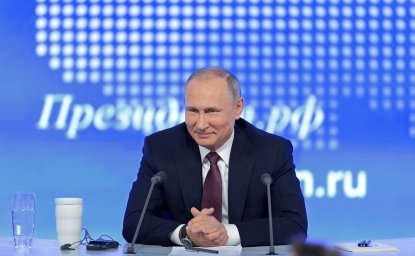
Kremlin Frames Trump’s Negotiations as a Russian Victory

Azerbaijan Tests Moscow’s Limits Amid Rising Tensions
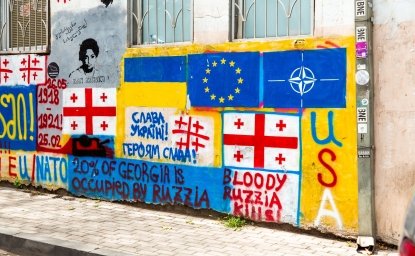
Beyond the “Good Russian” – Rethinking Exile and Engagement
